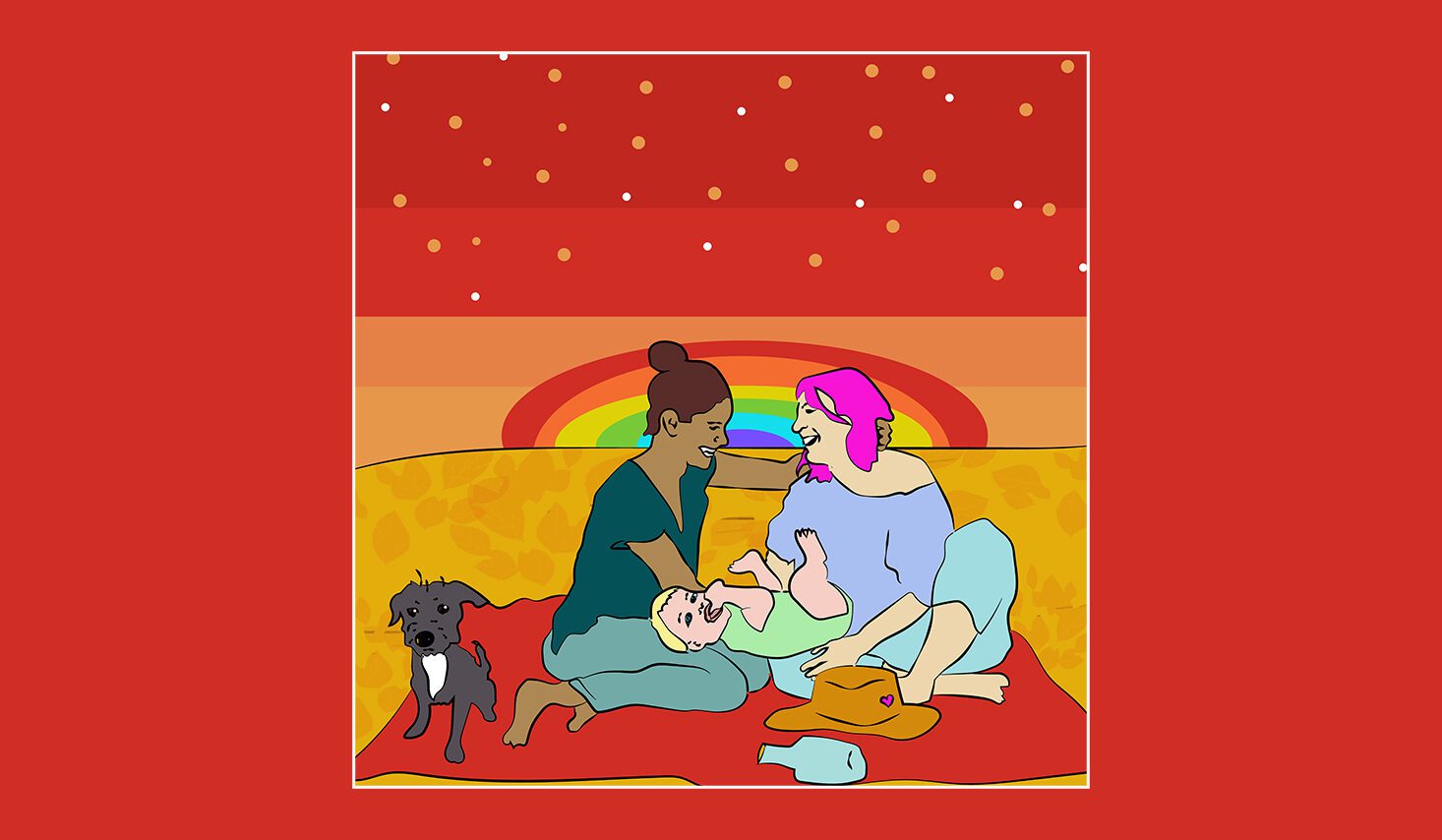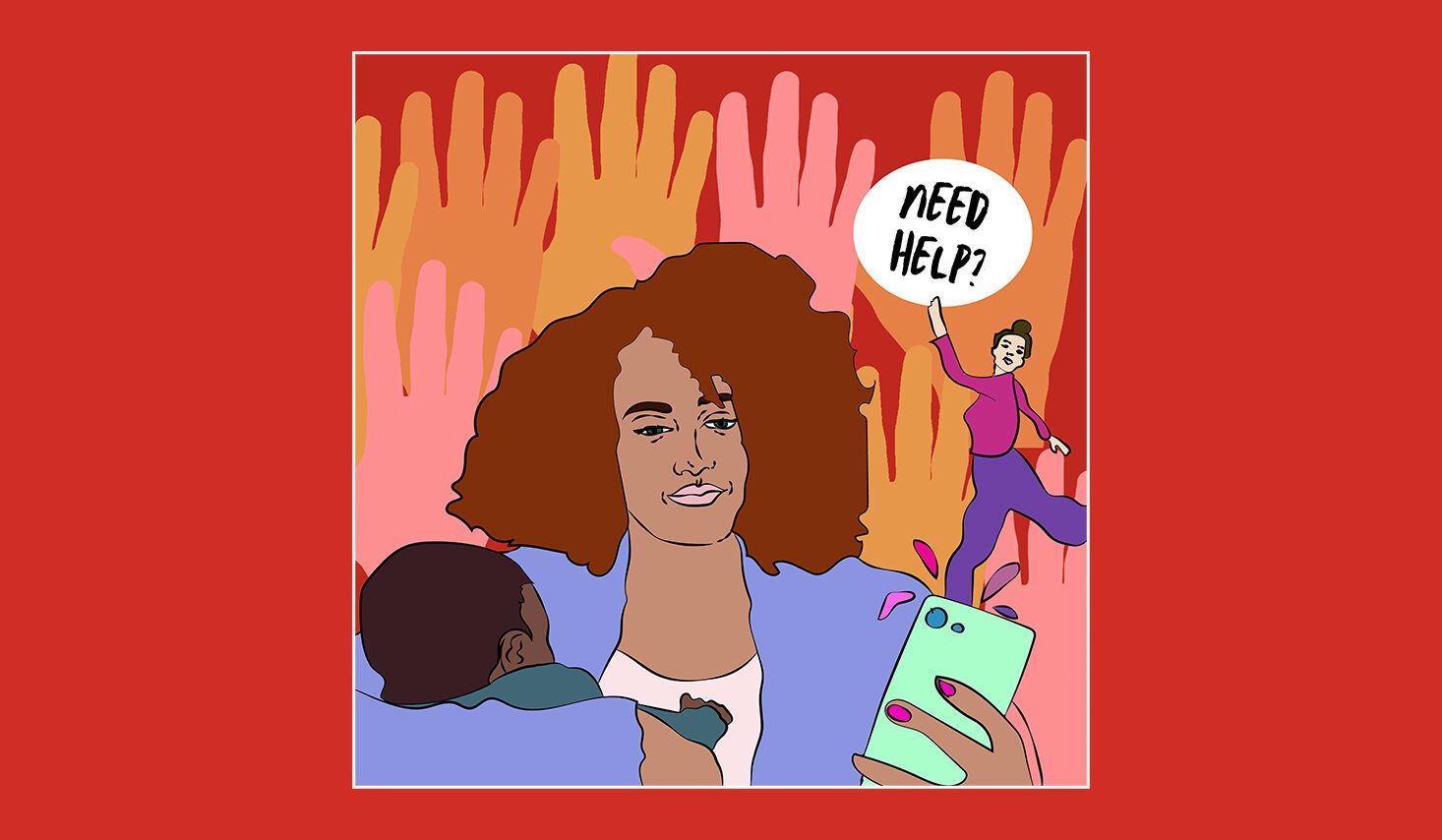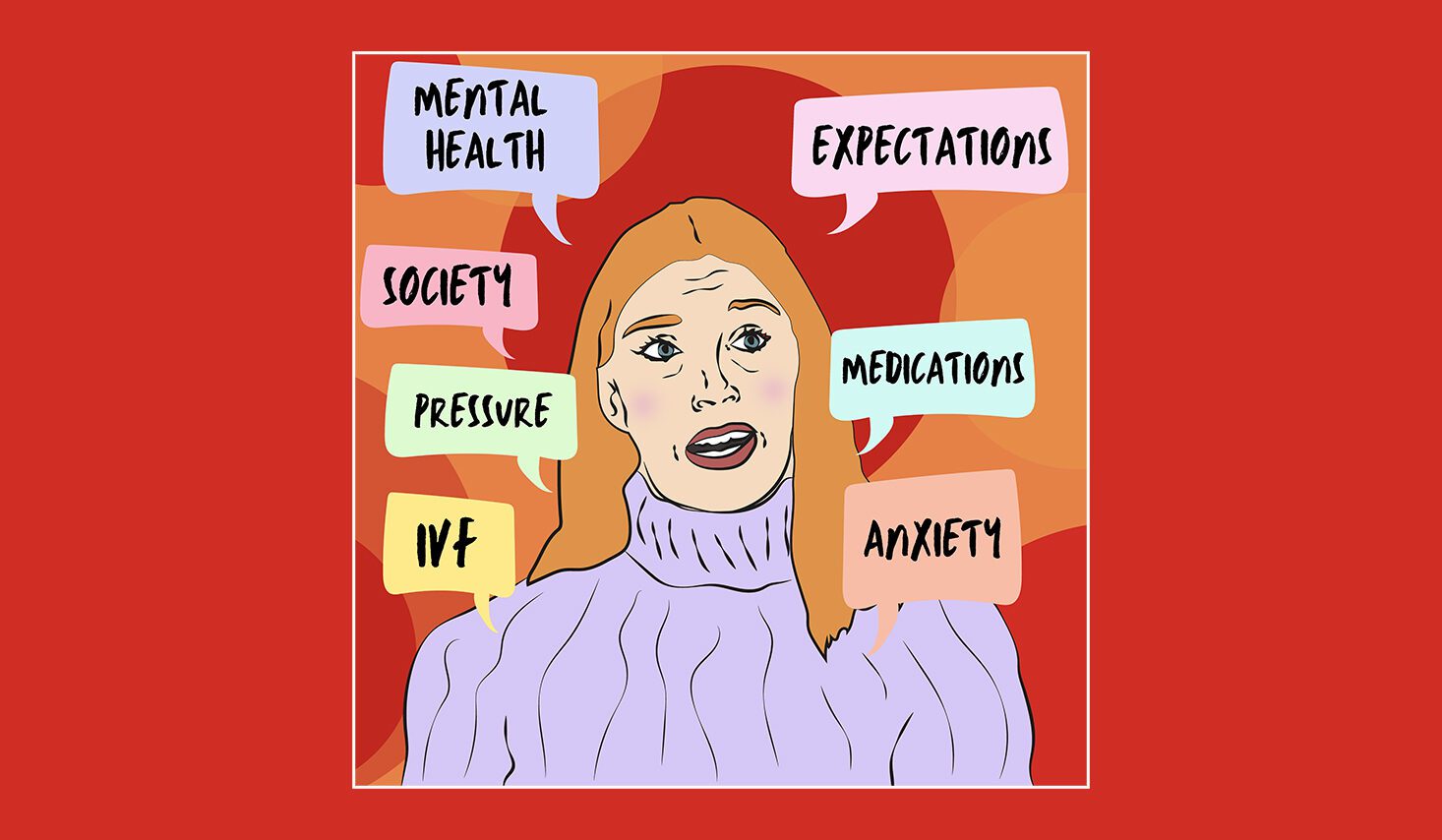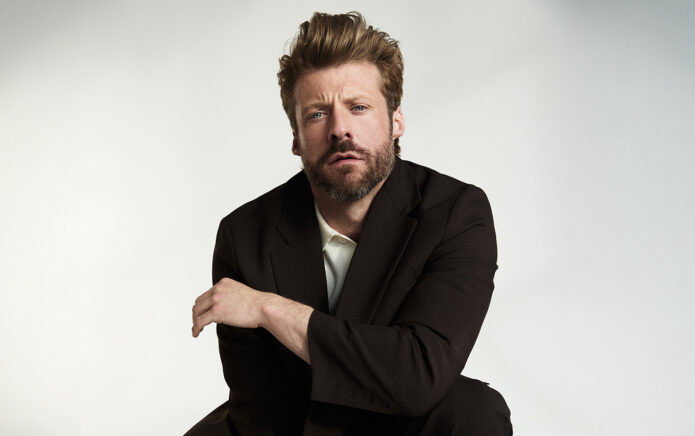
MALTESERS®, in partnership with Comic Relief, launched a campaign to make the “heavy stuff a little lighter” by encouraging a more open dialogue around mums’ mental health and the importance of support networks. As part of the campaign, GAY TIMES has partnered with Maltesers® to allow the queer parent community to have a voice and talk about their experiences, conducting a survey among queer parents to understand more about their specific needs and the significance of support networks, especially for new parents. The people we love need more than a double tap and a heart emoji of their baby pictures on social media – it’s time for people to go a step further and recognize that #LoveBeatsLikes.
We’ve all seen pictures of smiling parents with their children on social media. These images paint a portrait of the perfect family: the parents appear happy and besotted with their little ones. Even videos or pictures of crying babies and temper tantrums seem to come from a place of love, the tears shared with a loving sense of mockery, an affected eyeroll and a laugh. From what we see online, being a parent looks pretty great all of the time.
Of course, if there’s anything that social media has taught us it’s that not everything you see is always the truth. According to a new survey from Maltesers®, a third of first-time mums admitted to only sharing positive posts on social media about parenthood. Likewise, almost two-thirds (64%) believe the content that other mums choose to post online doesn’t reflect the reality of how they are feeling or coping. While parenting can be fulfilling, what’s often obscured by carefully curated social media posts is how blooming hard it can be.
Along with the responsibility, parents can often feel lonely and overwhelmed. The survey commissioned by Maltesers® revealed that new mums and those who give birth find the first year of their baby’s life harder and more tiring than expected, with people reportedly feeling disconnected from friends and like they’ve lost their identity.
The implications of this can’t be understated. Research into the issue of maternal mental health by the Maternal Mental Health Alliance suggests that more than 1 in 10 women experience a perinatal mental health problem during pregnancy or within the early postnatal years, with 70% of those hiding or downplaying their illness.
For LGBTQ+ parents, there are additional issues that people face alongside the struggles also experienced by cishet parents, with a survey conducted by GAY TIMES finding that 81% of LGBTQ+ parents feel that they have specific needs and challenges.

One of the biggest issues facing LGBTQ+ parents is how society treats them, with over half of respondents to GAY TIMES’s survey believing that society is not accepting of queer parents. People also felt that there wasn’t easily accessible information available for queer parents who may be struggling, especially information that is LGBTQ+ specific. There are, however, provisions available to both cishet and queer parents by services such as Mind, Family Lives, the NSPCC and any local Family Information Services.
Of course, all this paints a rather dour image of being a queer parent, which isn’t the whole picture. According to the survey, LGBTQ+ people with children spoke about the joys of parenting and the benefits of an alternative family unit. One of the biggest bonuses was being able to instill a sense of tolerance and acceptance of people’s differences, be that sexuality, gender identity, race or disabilities. Likewise, queer parents spoke about the ability to raise their children without enforcing harmful gender stereotypes, while another said that they’d been teaching their children all about how amazing drag queens are. Family viewings of RuPaul’s Drag Race are clearly essential.
Nevertheless, while there is undoubtedly great pleasure in being a queer parent, 80% of the people GAY TIMES spoke to said that they felt it was difficult to meet other gay parents. In part, this will be a numbers game: there just simply aren’t as many LGBTQ+ parents as there are cishet parents. However, queer parents spoke about how important it was for them to demonstrate to their kids that their family unit isn’t unique, in order to alleviate any feelings of isolation or difference.
It takes a village to raise a child, the old adage goes. While this is true for everyone, it’s particularly important when considering LGBTQ+ families and the significance of chosen family for queer people. Not all queer parents have the support of their families because of their gender identity or sexuality. There are also the unique challenges that LGBTQ+ parents face that cishet parents don’t, like discrimination and a lack of dedicated resources.
Clearly having a network of friends and family – be that chosen or blood family – is essential in order to ensure that LGBTQ+ parents have the support that they need in order to be the best parents they can for their children. Organisations like Switchboard and Stonewall should be able to provide information about any local groups for LGBTQ+ parents. Similarly, websites like Meetup.com have a number of different community groups that people can join in order to meet other LGBTQ+ parents, while organisations like New Family Social provide information, support and resources for LGBTQ+ adoptive and foster families.
What’s also essential, though, is that the burden isn’t placed entirely on parents. Numerous studies suggest that social support is essential when it comes to maintaining good mental and physical health. This is particularly apparent when it comes to new parents, with one study suggesting that a lack of social support was one of the most relevant factors associated with antenatal depression in women.

Of course, when people become parents their relationships to their friends and families might change. But what’s important is that those same friends and family members still show up for LGBTQ+ parents. For those with children under the age of one, this could include bringing together parents with young children in ways that aren’t necessarily all about babies, be that outings to parent and baby movie screenings or events like Baby Loves Disco, a family friendly daytime dance party with real DJs playing proper floorfillers, albeit at a baby-friendly volume, that also incorporates face painting, chill out zones, play tents, crafts and competitions (there’s even a cash bar for parents).
Whatever it is that people do to help parents, both with young and older children, what’s important is that we destigmatise issues that parents may face with their mental health. Comic Relief has supported work in this area since 2010 by funding organisations across the UK that aim to reduce social isolation and help families across the UK to access specialist support. With help from Maltesers®, they’re already supporting incredible work carried out by projects like The Happy Mums Foundation and Smile Group, both of which focus on supporting women with maternal mental health issues.
However, Maltesers® current Maternal Mental Health campaign is all about ensuring that there is a wider conversation about parental mental health, especially that of women and pregnant people and encourage people to show support to the new parents in their lives. While hitting like on a baby picture or sending a heart eye emoji to a friend with a child might seem like you’re showing your support, parents often need more than just social media support. Offering support, be that help with childcare or just the chance to have a chat, could provide LGBTQ+ parents with the reassurance they need, while also offering them a chance to share any difficulties that they may be having. Showing love instead of just a like could make all the difference.
As with any other aspect of the LGBTQ+ community, we owe it to queer parents to show our solidarity and support. While many LGBTQ+ activities and spaces are centred around nightlife, there are spaces and events that are friendly and open to queer parents, be that queer picnics, Pride events and community centres. But it’s also imperative that on a personal level we are all checking in with each other and providing support should we have the capacity and ability to give it. As they say, it does take a village and the LGBTQ+ community, while not a monolith, is so vibrant, diverse and supportive that if it were a village it would be the most fabulous, inclusive and colourful place on earth. Now, who wouldn’t want to raise a child there?
Maltesers® has partnered with Comic Relief for a multi-year partnership. Money donated by Maltesers® will help fund projects aimed at supporting women’s mental health and empowerment journeys. For more information about how to access support please visit comicrelief.com/Maltesers.
Comic Relief is the operating name of Charity Projects, registered charity in England & Wales (326568) and Scotland (SC039730).
